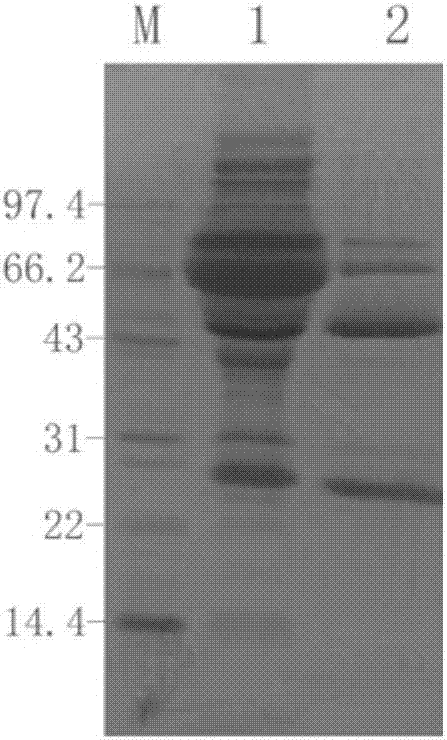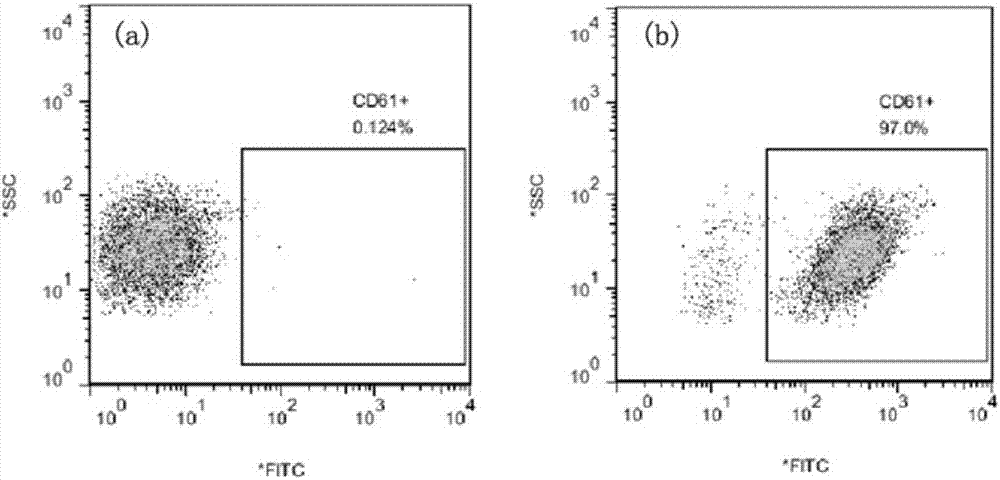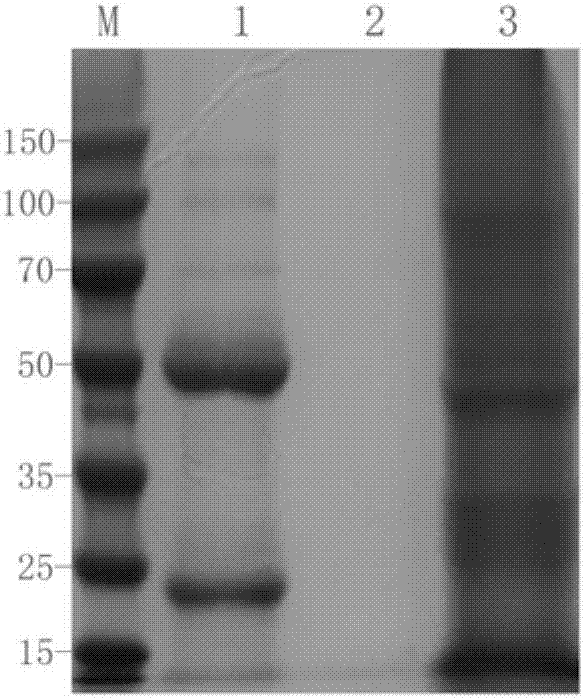Mouse anti-human CD61 monoclonal antibody hybridoma cell line, monoclonal antibody and preparation method and application thereof and flow cytometry detection reagent
A hybridoma cell line and monoclonal antibody technology, applied in anti-receptor/cell surface antigen/cell surface determinant immunoglobulin, biochemical equipment and methods, biological testing, etc.
- Summary
- Abstract
- Description
- Claims
- Application Information
AI Technical Summary
Problems solved by technology
Method used
Image
Examples
Embodiment 1
[0033] The preparation of hybridoma cell line IID5G8 comprises the following steps:
[0034] 1. Immunity
[0035] 1. Preparation of immunogen
[0036] (1) Take 3mL fresh buffy coat retrieved from Henan Red Cross Blood Center, add 7mL 1×PBS to dilute and mix;
[0037] (2) Take a 15mL centrifuge tube, add 4mL of lymphocyte separation medium, and slowly and steadily add 10mL of diluted buffy coat to the surface of the lymphocyte separation medium;
[0038] (3) Horizontal low-temperature centrifuge 500×g, speed up to 1 gear, speed down to 0 gear, 18°C, centrifuge for 20 minutes;
[0039] (4) Collect the ring-shaped milky white layer and the upper layer into a new centrifuge tube;
[0040] (5) Add 1×PBS to 14mL, centrifuge at 500×g, 18°C for 20min, and discard the supernatant;
[0041] (6) Repeat washing once with step (5);
[0042] (7) Add an appropriate amount of 1×PBS to resuspend, stain with 0.4% trypan blue solution, count under a microscope, and adjust to the required ...
Embodiment 2
[0101] The preparation of mouse anti-human CD61 monoclonal antibody (mouse peritoneal induction method), comprises the following steps:
[0102] 1. Ascites preparation
[0103] (1) Select old female Balb / c mice, and inject liquid paraffin into the abdominal cavity of mice after filtration sterilization, 500 μL / mouse, for standby;
[0104] (2) Transfer the positive monoclonal cell line IID5G8 into a cell culture dish for expanded culture, and intraperitoneally inject hybridoma cells 7 days later, 0.8×10 6 A total of 4 mice were inoculated, and the injection dose was 500 μL / mouse;
[0105] (3) After one week, observe the occurrence of ascites in the mice. When the abdomen of the mice is obviously protruding and the skin is tight, puncture the skin of the abdomen of the mice with a 20mL sterile needle, and collect the ascites into a centrifuge tube;
[0106] (4) Centrifuge the ascites at 3000r / min for 5min, suck out the transparent liquid in the middle, aliquot and store at -80...
Embodiment 3
[0119] FITC-labeled CD61 monoclonal antibody, its preparation steps are as follows:
[0120] (1) Take the CD61 monoclonal antibody (1mg / mL) to be cross-linked for AKTA purification;
[0121] (2) Dissolve FITC in DMSO (Note: FITC used for each cross-linking should be freshly prepared and kept away from light) at a concentration of 1 mg / mL;
[0122] (3) Slowly add FITC into the antibody solution according to the ratio of P:F (CD61 monoclonal antibody: FITC) of 1 mg: 150 μg, shake gently while adding, make it mix with the antibody evenly, and react at 4°C in the dark for 8 hours;
[0123] (4) Add 5mol / L of NH 4 Cl to a final concentration of 50mmol / L, stop the reaction at 4°C for 2 hours;
[0124] (5) Dialyze the cross-linked product in PBS more than four times until the dialysate is clear;
[0125] (6) Identification of cross-linked substances
[0126] Protein concentration (mg / mL) = (A280-0.31×A495) / 1.4;
[0127] F / P ratio: 3.1×A495 / (A280-0.31×A495), the value should be ...
PUM
 Login to View More
Login to View More Abstract
Description
Claims
Application Information
 Login to View More
Login to View More - R&D
- Intellectual Property
- Life Sciences
- Materials
- Tech Scout
- Unparalleled Data Quality
- Higher Quality Content
- 60% Fewer Hallucinations
Browse by: Latest US Patents, China's latest patents, Technical Efficacy Thesaurus, Application Domain, Technology Topic, Popular Technical Reports.
© 2025 PatSnap. All rights reserved.Legal|Privacy policy|Modern Slavery Act Transparency Statement|Sitemap|About US| Contact US: help@patsnap.com



